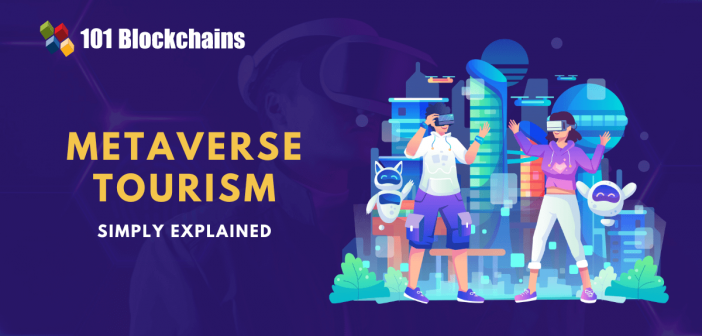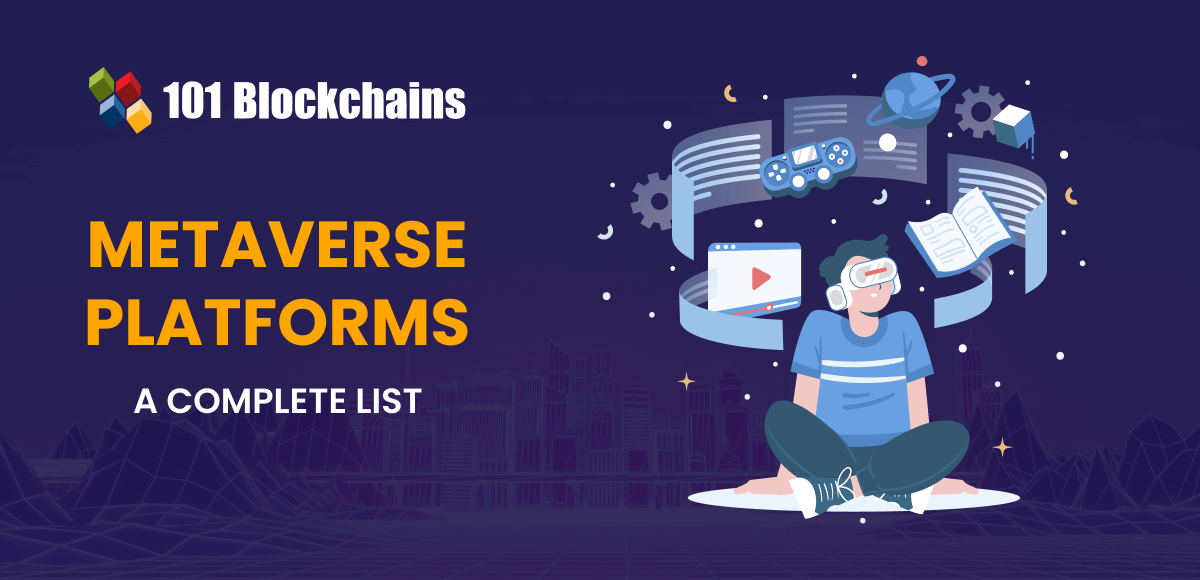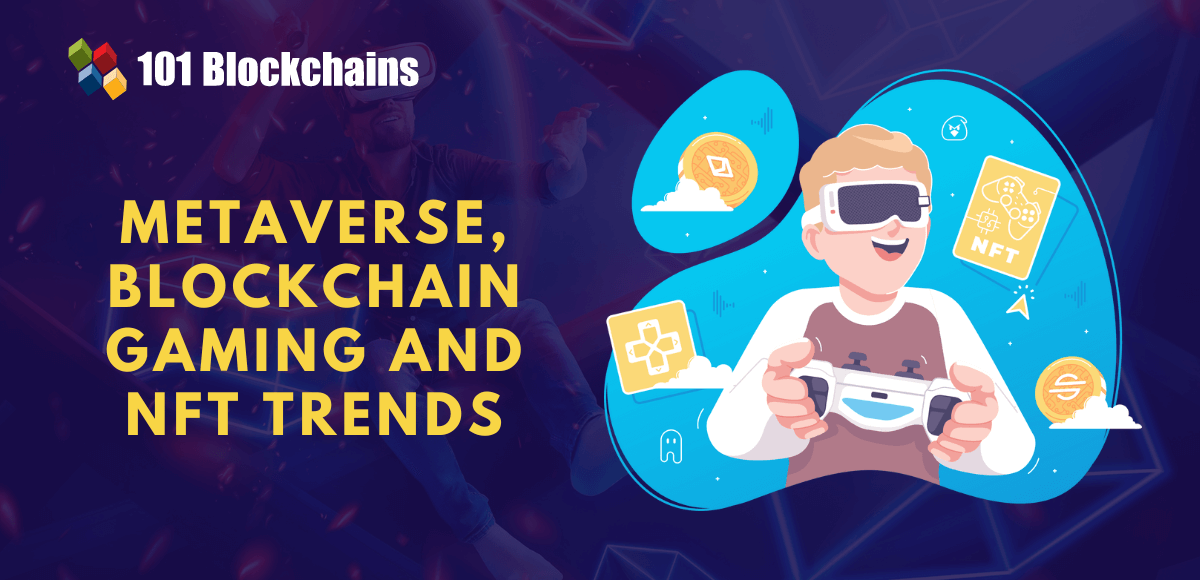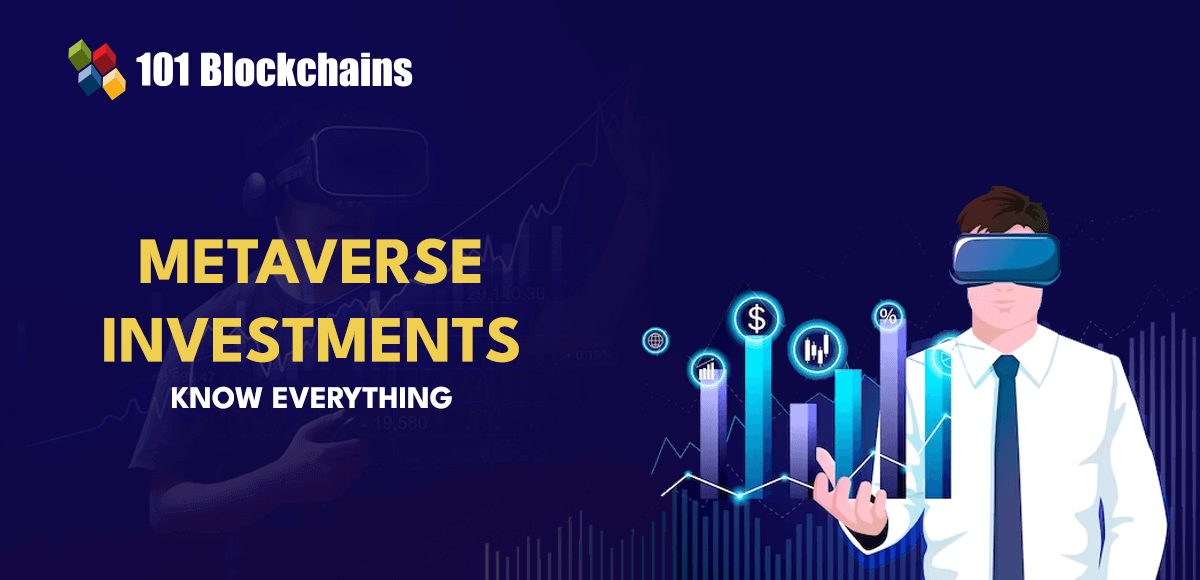Learn how blockchain truly works, master key definitions, and uncover what makes smart contracts so "smart." Dive into the fundamentals, gain valuable insights, and start your blockchain journey today!

- Metaverse
Georgia Weston
- on August 17, 2022
Metaverse Tourism – Everything You Need to Know
The conceptual underpinnings of the metaverse have shown that it represents a formidable intervention in the world of technology. Metaverse has been around in the world since the 1990s and has come to the limelight in recent times. What exactly spurred the shift of the metaverse from science fiction novels and movies toward real projects? The metaverse defines new approaches for digital experiences and social connections in interconnected virtual spaces. Therefore, the applications of a metaverse in different use cases such as tourism can serve many promising advantages.
The glimpses of the metaverse tourism overview could showcase how the metaverse is capable of more than just entertainment and video games. The following discussion offers you an introduction to metaverse tourism with a detailed understanding of the impact of metaverse on tourism. You can also find practical examples of metaverse tourism alongside the best practices for leveraging metaverse capabilities in tourism.
Connection between Metaverse and Tourism
The guides on metaverse impact on travel would need a detailed impression of how metaverse and tourism can find common grounds. You need to understand the metaverse and tourism industry distinctively to develop a credible understanding of metaverse tourism.
As of now, the commonly accepted definition for the metaverse paints it as a digital platform offering immersive digital experiences for users in decentralized environments. The origins of the term ‘metaverse’ go back to ‘Snow Crash,’ a science fiction novel published in 1992. You can wear virtual reality headsets and enter the immersive 3D virtual worlds in the metaverse.
In addition, users can rely on motion-sensing controllers and microphones to interact with virtual objects and other users. The fitting description for the metaverse would illustrate it as the conglomeration of different connected digital realms. Users can create their avatars, games, and assets within the metaverse and explore different ways to interact with virtual spaces in the metaverse.
The discussion on metaverse tourism examples also calls for a clear understanding of the definition of the tourism industry. The important aspects of tourism include transportation, entertainment, food and beverages, and guest accommodation. You can also come across many other activities in the ambit of the tourism industry.
How do the metaverse and tourism industries fit each other? The connection between tourism and the metaverse is clearly evident in the facility for creating virtual counterparts of real-world objects and environments. Virtual Reality or VR headsets can help you visit distant locations from the convenience of your home with almost real experiences. However, it is important to differentiate metaverse tourism from VR tourism as the metaverse is capable of much more than VR experiences. Virtual Reality is only one of the technologies in the metaverse that can influence metaverse tourism products and services.
Want to get an in-depth understanding of metaverse concepts? Enroll now in the Metaverse Fundamentals Course
Impact of Metaverse on Tourism and Hospitality
The benefits of metaverse tourism should not cause panic in the tourism and hospitality sector. For now, you can be sure that virtual travel experiences in the metaverse would not affect bookings for physical vacations. As a matter of fact, the metaverse would offer a new instrument for the tourism and travel industry to connect with consumers.
Therefore, metaverse tourism would aim at improving the travel experience of consumers by leveraging the benefits of virtual tourism. The metaverse tourism advantages could help people all over the world enjoy experiences from their homes. Visitors can use the metaverse for attending different events such as,
- Live concerts
- Museum tours
- Conventions
- Casinos
- Dancing at nightclubs
The metaverse has also opened up opportunities for comparing different services such as hotels and restaurants. For example, you can use virtual tours of two different hotels in the metaverse to find the better choice for your vacation. The scope of metaverse tourism also enables users to interact with hospitality brands.
Effect of Metaverse Tourism on Hotels
The metaverse tourism overview suggests that the metaverse is still in the initial stages and would take a lot of time before registering any visible impact. How could hotel owners and professionals prepare for the adoption of the metaverse? Interestingly, hotels can harness the power of the metaverse to achieve plausible improvements in sales and marketing strategies. In addition, the metaverse can also help in enhancing daily operating procedures alongside revenue management techniques of hotels. At the same time, hotels can seek new roads for expanding their audience reach alongside connecting with a new target market of virtual tourists.
Want to learn Metaverse concepts quickly? Check out Now Metaverse Flashcards and Metaverse FAQs
Marketing Opportunities for Tourism in Metaverse
The benefits of metaverse tourism can also introduce promising improvements in marketing opportunities for tourism and hospitality organizations. Businesses can offer immersive experiences in their marketing strategies with a more immersive demonstration of their products and services.
Customers could also use the metaverse to compare different businesses, their services, and distinct attractions. Tourism and hospitality professionals can explore many other digital marketing opportunities within the metaverse. Some of the examples include purchasing ad placements in the metaverse or running product placements. The metaverse is also a great platform for hosting virtual events or offering brand NFTs as a part of marketing initiatives.
Travelers and travel planners could plan holidays and events by using the metaverse for virtual tours of the hotels or venues. The metaverse can help in offering virtual tours of hotel rooms, meeting spaces, and wedding venues, along with interactive floor plans.
Excited to develop an in-depth understanding of the concept behind the metaverse? Enroll now in the Metaverse Technology Course
Increasing Revenue for Tourism in the Metaverse
The examples of metaverse impact on the travel industry also suggest the possibility of improving revenue beyond the marketing opportunities. Hotels could use the metaverse for pumping up the weekday booking numbers and increase the number of extended-stay bookings. The metaverse can also help hotels in targeting business-leisure travelers alongside serving different hotel revenue management goals.
In addition, hotel professionals can use the metaverse as a tool for upselling their business. For example, revenue managers could encourage potential customers to explore additional product offerings, optional packages, and upgraded rooms. Event planners could use the metaverse to promote top-tier ticket sales, such as a virtual tour of VIP event areas. Similarly, the metaverse can serve as a great platform for selling tickets to virtual events like seminars and professional networking events.
Examples of Metaverse in Tourism
The best way to anticipate the future of metaverse tourism advantages would obviously focus on the examples in play. An overview of the different examples of metaverse tourism can help you develop a basic impression of how metaverse tourism will shape up in the future.
-
Travel and Tourism NFTs
Various big brands, such as McDonald’s, have capitalized on the power of NFTs to enhance their marketing strategies. NFTs or non-fungible tokens are one of the integral elements in the metaverse, and brand NFTs could drive customer engagement. One of the formidable examples of travel NFTs refers to Marriott Bonvoy, which unveiled 3 NFTs at the Art Basel Miami Beach 2021. The three NFTs came under the “Power of Travel” campaign and announced the arrival of Marriott in the metaverse. The digital art NFTs were put up for auction, and interested bidders purchased the NFTs with cryptocurrency.
The metaverse tourism overview pertaining to example of tourism NFTs by Marriott suggests the effectiveness of loyalty programs. Marriott also introduced an NFT countdown clock to encourage interest and awareness in their loyalty program. The targeted NFT marketing campaign definitely indicates the competitive advantage for Marriott in metaverse marketing.
Want to get an in-depth understanding of non-fungible tokens (NFTs)? Enroll now in NFT Fundamentals Course.
-
Transforming Daily Operations in Tourism
The metaverse can open up innovative channels for communication between tourism professionals and their target audience. In addition, the metaverse can also offer exciting resources for better internal communications. The metaverse can help tourism and hospitality professionals interact seamlessly with team members, corporate managers, remote employees, and off-site teams virtually. One of the best metaverse tourism examples, in this case, points to Roomza Hotels. The tech-based hospitality brand plans on introducing a ‘rooms-only’ hotel concept with a blend of digital tourism and metaverse tourism trends.
Users could find the keyless hotel rooms in mixed-use buildings supported with eco-friendly business operations. The interesting highlight of Roomza Hotels suggests the lack of physical meeting spaces or lobbies for exploring. On the other hand, guests could connect with communal hotel spaces through the metaverse without leaving the room.
The example suggests that tech would only serve as a complement for the core element of tourism and hospitality, i.e., people. Metaverse can help many tourism and hospitality businesses overcome their inefficiencies through automation of processes for customer booking and purchases. For example, tourism businesses could evaluate changes in labor costs if metaverse presence can help in offsetting expenses. Most important of all, you have the advantage of automation working to your advantage with tourism metaverse.
Want to quickly understand what metaverse really is and how it works? Check out the Metaverse Presentation
-
Adoption of Augmented Reality
Another prominent highlight in a metaverse tourism overview would focus on the role of augmented reality in tourism. Augmented reality can serve many viable improvements in the domain of metaverse tourism. For example, augmented reality apps on your smartphone could help in figuring out information regarding real-world locations and the surrounding environment.
The use of augmented reality in metaverse tourism would encourage the growth of AR-based tourist destinations and interactive elements in hotels. Most important of all, the use of AR in metaverse tourism can also depend on the beacon technology for offering relevant real-time push notifications.
Best Practices for Adopting Metaverse in Tourism
The insights regarding metaverse impact on travel and hospitality industry paint a clear picture of expected potential of metaverse tourism. However, it is also important to know how you can capitalize on the benefits offered by metaverse for tourism. Here is an outline of the best practices for adoption of a metaverse in the tourism industry.
- Establish the necessity of metaverse tourism by outlining a clear set of objectives for metaverse project.
- Create a metaverse marketing budget along with estimates of costs for implementation of metaverse technology.
- Try to monitor competitor initiatives and seek competitive advantage in deploying metaverse solutions.
- Look for opportunities in transient travel and group marketing to come up with targeted and personalized metaverse experiences.
- Develop a virtual itinerary for engaging with guests and communicating important information through the metaverse.
- Encourage tourists to collect virtual collectibles such as brand NFTs and store them in the metaverse as souvenirs.
- Combine play-to-earn games with loyalty programs, which can allow tourists to earn rewards by completing different activities in the metaverse.
Learn the fundamental technologies underlying metaverse platforms and the broader implications of metaverse design to become a metaverse expert through Metaverse Skill Path
Bottom Line
The metaverse has churned up many promising opportunities for the tourism and hospitality sector. Consumers can capitalize on benefits of metaverse tourism by experiencing a new and more immersive form of virtual tourism. On top of it, hotels and other hospitality organizations, such as event planners, can use the metaverse to improve operational efficiency.
The metaverse also provides an exceptional platform for boosting the marketing initiatives of tourism and hospitality businesses. The examples of tourism and travel NFTs can serve as the beginning for many innovative marketing practices in metaverse tourism in the future. Start learning more about the metaverse technology and how it could serve promising use cases in tourism.
*Disclaimer: The article should not be taken as, and is not intended to provide any investment advice. Claims made in this article do not constitute investment advice and should not be taken as such. 101 Blockchains shall not be responsible for any loss sustained by any person who relies on this article. Do your own research!






